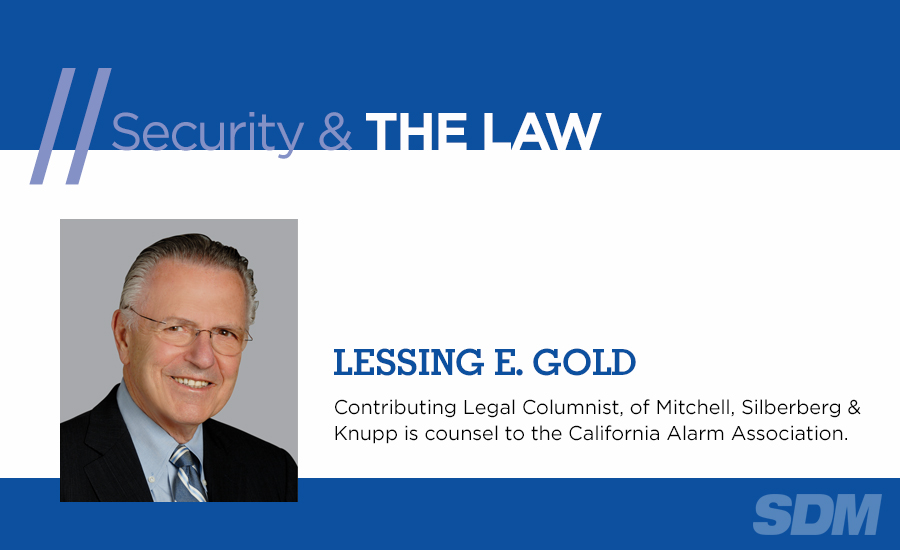The city of Chicago adopted a wage ordinance pursuant to its home rule unit authority established by the Illinois Constitution.
The plaintiffs, former security guards who provided security services for the defendant in and around the Chicagoland area, filed an action against the defendant security company asserting that the company violated the Fair Labor Standards Act, the Illinois Minimum Wage Law and the Chicago Minimum Wage and Paid Sick Leave Ordinance. The defendant security company moved for summary judgment.
The defendant was a licensed private security contractor certified and recognized by the state of Illinois. The plaintiffs alleged that they worked primarily in the city of Chicago and were paid less than the Chicago minimum wage set by the Chicago Minimum Wage Ordinance. The Wage Ordinance sets a higher minimum wage for non-tipped employees working in Chicago than the minimum wage established by the State.
In a sworn declaration, the Deputy Commissioner for the city’s Department of Business Affairs and Consumer Protection said the Department of Business Affairs does not enforce the wage ordinance against private security firms located in the city of Chicago who are alleged to have engaged in minimum wage violations under the wage ordinance.
In its motion for summary judgment the defendant claimed that the Illinois General Assembly preempted the city of Chicago’s home rule authority in the area of private security with its enactment of the home rule provision of the Private Detective Act.
The Private Detective Act defines licensing requirements for private security contractors and establishes a variety of other requirements related to security services, including training, continuing education, firearms registration, uniforms and permanent employee cards. The act includes the home rule provision that preserves “the power to regulate the private detective, private security, private alarm, fingerprint vending or locksmith business or their employees shall be exercised exclusively by the state and may not be exercised by any unit of local government, including home rule units.”
The plaintiffs argued that the wage ordinance is a law of general application that broadly applies to all employers throughout the city of Chicago and that it has no bearing on the regulations established by the Private Detective Act.
The court pointed out that had the state legislature intended to allow the city of Chicago to regulate aspects of the business of private security, it would not have included express language reserving all regulation of the business of private security for the state. The court further noted that the city’s Department of Business Affairs, the division that oversees enforcement of the wage ordinance, does not enforce the wage ordinance against private security firms in the city of Chicago, pointing out that this inaction suggests that the city does not believe it has the authority to regulate private security.
In a previous Illinois case involving a “prominent” alarm company, the court considered the plaintiff’s request for a permanent injunction preventing the village from enforcing a local ordinance that required all owners of commercial buildings to connect their fire alarm systems directly to the village’s fire board for monitoring. The court stated that because the interests of public safety come before the right of an individual to conduct business and the village ordinance only had a secondary impact upon the business community, the alarm system regulations were not preempted by the Private Detective Act. Here, the wage ordinance has a direct impact on the business regulations of private security.
Therefore, the Private Security Act preempts additional regulation of the private security by home rule units, so the wage ordinance cannot be applied to private security businesses.
READERS ASK
I own an alarm company and I understand that there are many federal and state rules and regulations regarding privacy. I do business in many states. What precautions can I take to make sure that we comply with all existing laws?
A: Keep in mind that if you are a security company, you are probably obtaining information from your customers or subscribers which I assume would be governed by privacy rules, both federal and state. So first you should make sure that you are aware of any state laws governing the rules of privacy in the states in which you do business, as well as federal law. Do not collect any information you do not need. Make certain that you have the consent of your customer or subscriber to use the information you have received. Make sure that the information and/or data is secure and there are safeguards in place to make sure that the data you are in possession of remains secure. Make sure that your employees with access to this information are aware of the privacy rules and keep in mind, they are required to maintain the same safeguards as the principals of the company. If you detect or become aware of any breach, make sure you contact your attorney or someone knowledgeable in your organization to remedy the problem and to determine what action you must take to mitigate any damage that may result because of the breach.
As a precautionary measure and something that most companies do not comply with, do not keep any information or data that you do not need, particularly for clients you are no longer servicing.
The above information is strictly precautionary and is not meant to comply with rules and regulations that may be imposed by any federal or state law.




